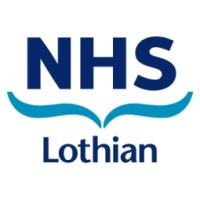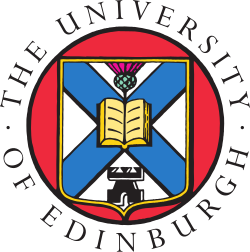Job Description
Grade UE07: £41,064 to £48,822 per annum
CMVM / School of Regeneration and Repair / Institute for Regeneration and Repair / Centre for Reproductive Health
Full-time: 35 hours per week
Fixed term: 12 months
The Opportunity
A vacancy has arisen to conduct research in the development of MicroPhysiological Systems (MPS), and, in the context of this position, this will involve evaluation of the integrity of the system to synthesise steroid hormones. The work to be undertaken is an integral component of an exciting research collaboration between the Centre for Reproductive Health (CRH) at the University of Edinburgh (PIs: Professor Hilary Critchley [Professor of Reproductive Medicine, CRH], and, Professor Ruth Andrew [Professor of Pharmaceutical Endocrinology and Director of the Mass Spectrometry Core of the Edinburgh Clinical Research Facility] and Professor Linda Griffith, Professor of Biological Engineering, Director of the Center for Gynepathology Research at Massachusetts Institute of Technology (MIT).
The project overall aim is the development of a comprehensive experimental and computational framework for describing the fate and action of steroid hormones in human MPS, with an emphasis on characterizing MPS systems representing female reproductive pathophysiology including heavy menstrual bleeding (HMB), endometriosis, and adenomyosis.
Experience in bioanalytical chemistry, and practical experience and knowledge of small molecular mass spectrometry, with a focus on analytical methods such as LC-MS/MS, will be necessary. Prior experience in the field of steroid biochemistry will be advantageous. The post holder will contribute to the development of new ideas, approaches, concepts or techniques, to the overall direction and management of this research project, and to publishing or otherwise disseminating the outputs of the research
.
This post is full-time (35 hours per week)
The salary for this post is
£41,064 to £48,822 per annum.
Your Skills And Attributes For Success
- A PhD or equivalent professional qualification and accumulated knowledge in the field of bioanalytical chemistry
- PhD (or to be completed within 3 months of interview date) in an appropriate field
- Practical experience and knowledge of small molecular mass spectrometry; with a focus on analytical methods such as LC-MS/MS
- Ability to contextualise and design biochemical experiments
- Strong planning and organising skills
Click to view a copy of the full job description (opens new browser tab)
Application Information
Insert any specific details about the application process and documents that may be required, for example:
Please ensure you include the following documents in your application:
As a valued member of our team you can expect:
- A competitive salary
- An exciting, positive, creative, challenging and rewarding place to work.
- To be part of a diverse and vibrant international community
- Comprehensive Staff Benefits, such as a generous holiday entitlement, competitive pension schemes, staff discounts, and family-friendly initiatives. Check out the full list on our staff benefits page (opens in a new tab) and use our reward calculator to discover the total value of your pay and benefits
Championing equality, diversity and inclusion
The University of Edinburgh holds a Silver Athena SWAN award in recognition of our commitment to advance gender equality in higher education. We are members of the Race Equality Charter and we are also Stonewall Scotland Diversity Champions, actively promoting LGBT equality.
Prior to any employment commencing with the University you will be required to evidence your right to work in the UK. Further information is available on our
right to work webpages (opens new browser tab).
The University may be able to sponsor the employment of international workers in this role. This will depend on a number of factors specific to the successful applicant.
Key dates to note
The closing date for applications is 26 September 2025.
Unless stated otherwise the closing time for applications is 11:59pm GMT. If you are applying outside the UK the closing time on our adverts automatically adjusts to your browsers local time zone.
About Us
As a world-leading research-intensive University, we are here to address tomorrow’s greatest challenges. Between now and 2030 we will do that with a values-led approach to teaching, research and innovation, and through the strength of our relationships, both locally and globally.
About The Team
The Centre for Reproductive Health (CRH; Director; Professor Andrew Horne) at the University of Edinburgh has the largest concentration in the UK of scientists who study reproductive health, from basic biology to clinical translation. It is one of the leading Centres in reproductive health in the world and is a trusted source for this research globally.
CRH conducts fundamental and applied research that aims to develop novel treatments for the major unmet needs in reproductive disorders and to exploit impacts of this research across medicine. The internationally competitive research activity of reproductive scientists based within the Centre is augmented by clinical activities based within the adjacent Royal Infirmary and Simpson Centre for Reproductive Health.
A central mission is “to gain fundamental understanding of the impact of reproductive processes and their pathologies on the entire life-span of males and females: to use this knowledge to improve human health from birth to old age and to provide leadership in training and public engagement in reproductive health“. This vision is currently enabled by four groupings: (i) Reproductive Resilience, Proliferation, Differentiation and Repair (ii) Reproductive system cancers: aetiology, pathogenesis and therapy (iii) Optimizing life-long health through pregnancy and perinatal interventions (iv) Immune-Endocrine interactions in Reproductive Health.
https://www.ed.ac.uk/centre-reproductive-health



